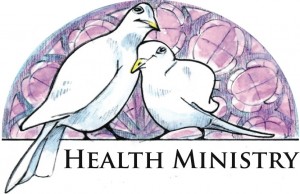 by Donita Robards, Parish Nurse
by Donita Robards, Parish Nurse
Men’s health is a frequently neglected topic in health care. Nonetheless, it is important to consider the risks imposed upon our fathers, brothers, sons and friends simply because of their gender. Specific health risks are more common at different stages in life, and it is vital to be aware of when disease is more likely to strike and what symptoms to look for. While it is true that young men usually don’t have to worry about their health, they too need to know what to look for in case they experience unusual symptoms.
There are two types of cancer that are unique to men: testicular and prostate. These cancers generally affect men at different ages. Testicular cancer is more common in younger men. It can occur in teenagers. It is less common in the middle-aged. Risk factors for testicular cancer are also an undescended testicle, or abnormal testicular development. A family history or previous diagnosis of testicular cancer is also relevant. A testicular self-exam is still the best way to note any lumps which would warrant a visit to your doctor. A lump does not automatically mean that you have cancer, but early detection is key to a successful outcome. Symptoms of testicular cancer are a small painless lump in the testicle, or a slightly enlarged testicle. You may feel heaviness in the scrotum, or a dull ache in the lower stomach or groin.
The risk of prostate cancer increases with age. It usually affects men from the age of 50 and up. A family history is also a high risk factor as well as race. African American men are at higher risk. Prostate cancer is usually a slow growing cancer and there may not be any symptoms initially. As the disease progresses you may experience trouble urinating, decrease force in the stream of urine, blood in the urine, blood in the semen, swelling in the legs, or discomfort in the pelvic area and bone pain.
If you have any symptoms, contact your primary care physician for a complete exam. Your doctor can discuss the options available to you. Remember, survival rates with good outcomes are excellent with early detection and treatment. Please don’t hesitate to get the care you need, your families need you! Happy Father’s Day and many more to come!
